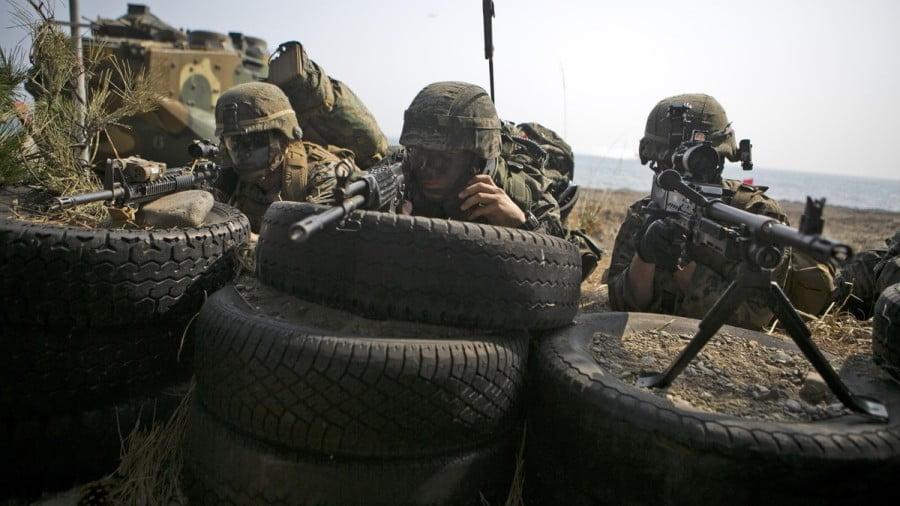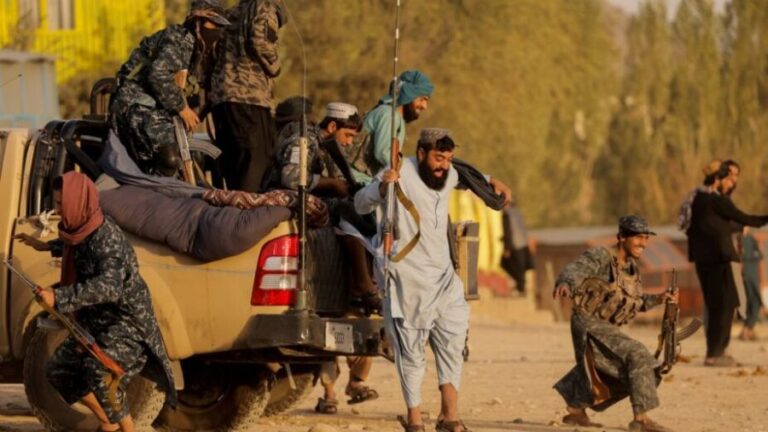When Syrian War Ends, Woe to the Kurds
It was a tree-lined street – the white acacias are blooming in Aleppo at this time of year – and the apartment block was, as we journalists used to say, unassuming. But on an upper floor, the Syrian men sitting round the air-conditioned room were deadly serious until a voice shouted on the recording which was being played to them from a desk opposite the door. Then they laughed very loudly indeed.
“Al-Nusrah has brought dishonour on the head of my son and children,” the voice wailed, angry and frightened. “Just tell Nusrah to stop fighting – they must obey the teaching of God and not harm people. The have attacked my family, bullets have destroyed my home and my car.” The voice belonged to an official of Ahrar al-Sham, a Salafist militia once allied to al-Nusrah-al-Qaeda, the fiercest armed opponent of Bashar al-Assad’s regime and the same organisation which, in its original form, perpetrated the 9/11 crimes against humanity. But for the past four days, Ahrar al-Sham and Nusrah are fighting and killing each other. That is why the Syrians in the Aleppo room are laughing.
There are more recordings from cell phones now, of men trying to arrange ceasefires across Idlib province, the vast dumping ground into which the Syrian regime is sending its Wahabi enemies when they agree to abandon their city enclaves. But the local truces between these groups do not work and there is now inter-guerrilla fighting across the triangle formed by the provinces of Hama, Idlib and Aleppo. As the voices continue, an official enters the room carrying a CD disk in a transparent plastic bag with two pages stapled to it, one of which appears to carry a photograph of a man. The pages are signed and left on the desk.
You do not need a PhD in intelligence to understand what is happening. Ahrar al-Sham, largely supported by Qatar and Turkey, is at war with al-Nusrah whose support has come from Saudi Arabia (and Qatar in the past) and, so far as the Syrians are concerned, from the United States. For the Syrians, the Qatar-Saudi dispute is now being fought out on the ground between the two sides’ proxies in the Syrian war. The first battles broke out in Tel Torgan in Aleppo province and then expanded to Saragib in the countryside round Idlib. In Saragib, it appears, Nusrah killed every Ahrar man they found. Now Ahrar al-Sham have an alliance with the Turkmani groups and the gloriously named ‘Nureddin Zinki’, local fighters who once played a role in the capture of eastern Aleppo. The real Nureddin al-Zinki – or Zengi as he would have been called at the time – was a 12th century Seljuk emir of Damascus and Aleppo who fought the Crusaders but who, ironically, was also trapped in a series of internecine battle with regional Arab rivals.
All of this makes the Syrian regime – and the army which is watching its enemies fighting each other – quite content. Another recording, another voice, this time a Facebook audio – the militias are obliging enough to give away their secrets since they are obsessed with technology – which announces that 2,500 fighters have now deployed on the Turkish border to fight Nusrah. Prominent local civilian and tribal leaders who have appealed for an end to the fighting are being ignored. The western side of the Aleppo governorate is peaceful – but is not under government control. Isis and Nusrah are maintaining an alliance.
The men in the room treat this more like vaudeville than tragedy. They have followed the slippery loyalties of the armed groups for months and know that the names of their enemies change as quickly as the trust which these groups demonstrate towards their supposed allies, how al-Qaeda became Nusrah and then – after its leadership staged a propaganda interview on al-Jazeera to display their ‘moderation’ towards minorities – to Fateh al-Sham. Isis still has a small pocket of territory in the desert north of Khanaseer – I know this to be true because I travel the Khanaseer desert road to Aleppo and can see on each trip the burned out oil tankers and occasional army tanks which Isis has wrecked during its raids. But elsewhere, Isis have been driven at least 70 miles from the desert highways which lead to eastern Syria.
There are intriguing historical observations made in the room, which are – as tourist guidebooks might say – worthy of note. During the 1973 Arab-Israeli war, the men in the room agree, the local Arab population on Golan had supported the Syrian army and many Israeli soldiers were killed. But now these people did not support the army and instead killed many Syrian soldiers. “In 1973,” one man says, “the enemy were at our borders. Now they are inside.”
There is also much talk of weapons, especially the American TOW anti-armour rockets which Nusrah brought into Syria in large numbers. The Syrian army had paid a heavy cost in these battles, until they received new Russian weapons. The Syrian 11th Brigade at the Syrian-Turkish border had been repeatedly attacked. There are still Muslim Brotherhood units near Dera’a in the south. If Syria was fighting just one state, there would be a quick victory, “but it is fighting states from all around the world”, one man says. This statement might smack of propaganda – even self- pity – if it did not bear an element of truth. One rebel unit calling itself Jund Mohamed was led by an Egyptian army officer – since fired by his commanders – and the Syrians eventually targeted the man in an ambush after information from a source inside the rebels. Their first rocket attack killed their own source. The second wounded the Egyptian and 35 others.
Then came a quite remarkable comment from one of the men which – whatever its veracity – should be recorded if only because it is believed in Syria. “The most criminal fighters are the Tunisians,” he said. “The reason is that [the late] President Bourguiba gave freedom to women and as a result, there were many Tunisian women who had illegitimate children. All of these children were taken to Islamic schools as orphans and taught Islamist teaching. They ‘converted’ them to their own extremist [Salafist] ideology and taught them to wear beards when they were teenagers, and to kill those who don’t obey their teachings.”
But it was the Kurdish fighters who enraged the men in the room almost as much as Isis and Nusrah. “The Kurds think they can form their own canton in northern Syria,” said the man beside the desk. “They are like the Israelis – they are telling the world that they are alone, surrounded by enemies and must be protected. But 80 per cent of the Kurdish people do not want to be separated from Syria. The Kurds like to think they can link up with the Americans, the Germans, the French, the Turks, with all of these big states.
“But Russia was betrayed by them. These Kurdish groups are liars. We gave them weapons to fight the terrorists – now we no longer give them weapons to protect themselves. We did not give them weapons so that they could make states. Now they are fully supplied by the Americans.”
Much nodding of heads around the room. The Kurds will clearly get no state in the north of the country if Syria has its way. “The Kurds are very afraid from Turkey,” the man beside the desk continued. “You know how the Kurds after the First World War lost everything. They did not get a state. They were the first losers, they were like a doll in the game of powers. They killed half the people of Cilicia, Armenians and Cilicians. Now they are trying to play the game again in the politics of the region – but they will lose.”
The rebels will surrender or die. This was the mood – hopelessly simplistic or true, depending on your point of view – in the air-conditioned room in that Aleppo apartment block. But woe betide the Kurds of northern Syria when the war is over.
By Robert Fisk
Source: The Independent







